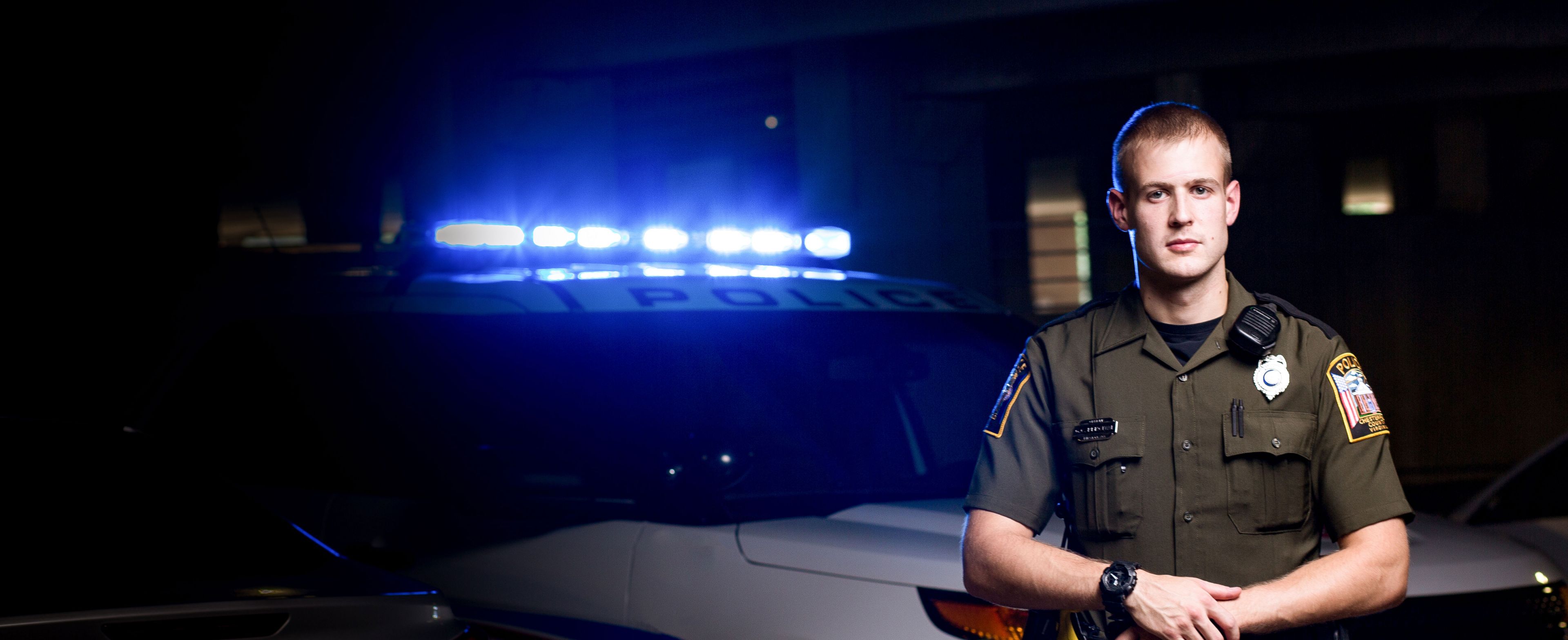Save Our Children from Crime with Our Bachelor of Science in Criminal Justice – Juvenile Justice Degree
The youth in our country hold the future in their hands, and to lose them to the criminal justice system would be detrimental to the success of our cities, states, and nation. Through our Bachelor of Science in Criminal Justice – Juvenile Justice degree, you can learn how to work with juveniles and save them from going down the wrong path in life. If they are already involved in criminal activity, you will be trained to help them turn away from it.
Through Liberty University’s bachelor’s in juvenile justice, you can learn how to rehabilitate and prevent repeat offenders. Community-based corrections involves providing correctional supervision and services in a community setting as an alternative to jail or prison. This is especially effective with juveniles as they tend to be hardened upon entering a standard correctional facility.
Our professors will use hands-on activities to teach you a practical understanding of community-based corrections, delinquency, and crime prevention. You will prepare for a career in juvenile corrections by studying the internal workings of the criminal justice system and how it responds to juvenile delinquency. You can also learn some of the more successful methods for establishing rehabilitation programs.
Award-Winning Campus
At Liberty, you’ll find an affordable, high-quality education that equips students like you for the real world. Our commitment to excellence helped us rank as the #4 Best College Campus in America by Niche.com. Earning your degree from a nonprofit university with state-of-the-art resources like ours can help set you apart from your peers.

Why Choose Liberty’s Bachelor’s Degree in Criminal Justice – Juvenile Justice?
The experience you gain at Liberty University will be more memorable and meaningful thanks to the active participation you will encounter in our programs. Our professors are not only professionals in the field, but they teach you from a biblical worldview and show you how to integrate your beliefs into your career.
With programs like our Washington Fellowships, you can gain hands-on experience through internships with organizations related to juvenile justice. You will also have the opportunity to benefit from membership in Alpha Phi Sigma, the national criminal justice honor society. Gain opportunities for scholarship and career advancement as you connect with the criminal justice arena. Likewise, our Criminal Justice Club also hosts many events and offers opportunities for you to network and advance in a criminal justice career.
What Will You Learn in Our B.S. in Criminal Justice – Juvenile Justice Degree Program?
In our B.S. in Criminal Justice – Juvenile Justice degree, you can learn how to develop and implement strategies to prevent adult and juvenile crime. Throughout this degree, our experienced professors will impart their knowledge and training in the juvenile justice system. You will study the legal issues and ramifications of specific court decisions regarding juveniles so that you have background on situations you will experience in your career.
You can learn how to analyze community-based corrections programs for effectiveness and proper implementation. Some of these programs will be boot camps, electronic monitoring, and restorative justice programs. You will study the data on each method and possible solutions to reduce recidivism in youths participating in any of these programs.
Download and review our B.S. in Criminal Justice – Juvenile Justice Degree Completion Plan.
Featured Courses
CJUS 310 – Juvenile Justice
Here’s what you’ll learn:
- This course is designed to provide an in-depth study of the juvenile justice system in the United States.
- The student will study the general principles of juvenile delinquency, an overview of the juvenile criminal justice system, theories of delinquency, and other issues dealing with juveniles in the justice system.
CJUS 321 – Juvenile Corrections
Here’s what you’ll learn:
- An in-depth analysis of various correctional responses to juvenile offenders including diversion, community-based, and residential programs
- The extent to which juvenile correctional interventions are used
CJUS 322 – Community-Based Corrections
CJUS 324 – Legal and Ethical Issues in Juvenile Justice
Highlights of Our Bachelor’s in Criminal Justice Degree Program
- We were awarded an Illuminate Grant for Justice Project DNA testing equipment and training, allowing students under the supervision of professors from our Criminal Justice, School of Law, and Biology departments to research cold cases and assist criminal justice reform advocates in exonerating wrongly convicted individuals.
- Our bachelor’s in criminal justice degree produces graduates of distinction who have interned with agencies such as the FBI, U.S. Secret Service, U.S. Marshals, Metropolitan Police Department, and NCIS. Our graduates have gained employment with the U.S. Department of Defense, Transportation Security Administration (TSA), AECOM Defense Services Sector, and the Virginia State Police.
- You will be taught by professors recognized for their excellence in teaching and who have served with the FBI, the Virginia Beach Police Department, and other distinguished law enforcement agencies.
- Our program is rooted in the practical application of the theories you learn through simulations within the classroom and internships in the field.
Our Criminal Justice – Juvenile Justice Bachelor’s Degree Information
- Residential
- 120 total credit hours
- You may Transfer in up to 75% of your total degree.
- This bachelor’s degree program falls under our Helms School of Government.
- View our bachelor’s in criminal justice – juvenile justice Degree Completion Plan.
- Find more information about our bachelor’s degree in criminal justice program in our course catalog.
Career Opportunities for Our B.S. in Criminal Justice Graduates
-
Corrections recreation leader
-
Deputy prison warden
-
Juvenile justice detention officer
-
Juvenile rehabilitation coordinator
-
Juvenile/youth counselor
-
Probation officer
-
Youth correction facility director
Admission Requirements for Undergraduate Degrees
Every application is reviewed by the admission committee on a case-by-case basis, meaning there are no set minimums for acceptance. However, all applicants must submit the following documents* for admission:
- Admission application
- Official high school transcripts
- Official college transcripts (if applicable)
- Results from the CLT, SAT, or ACT are not required for admission, but may be used in consideration for merit-based aid.
- Admission essay
*Note that additional documentation may be requested by the admission committee after your application has been received.



